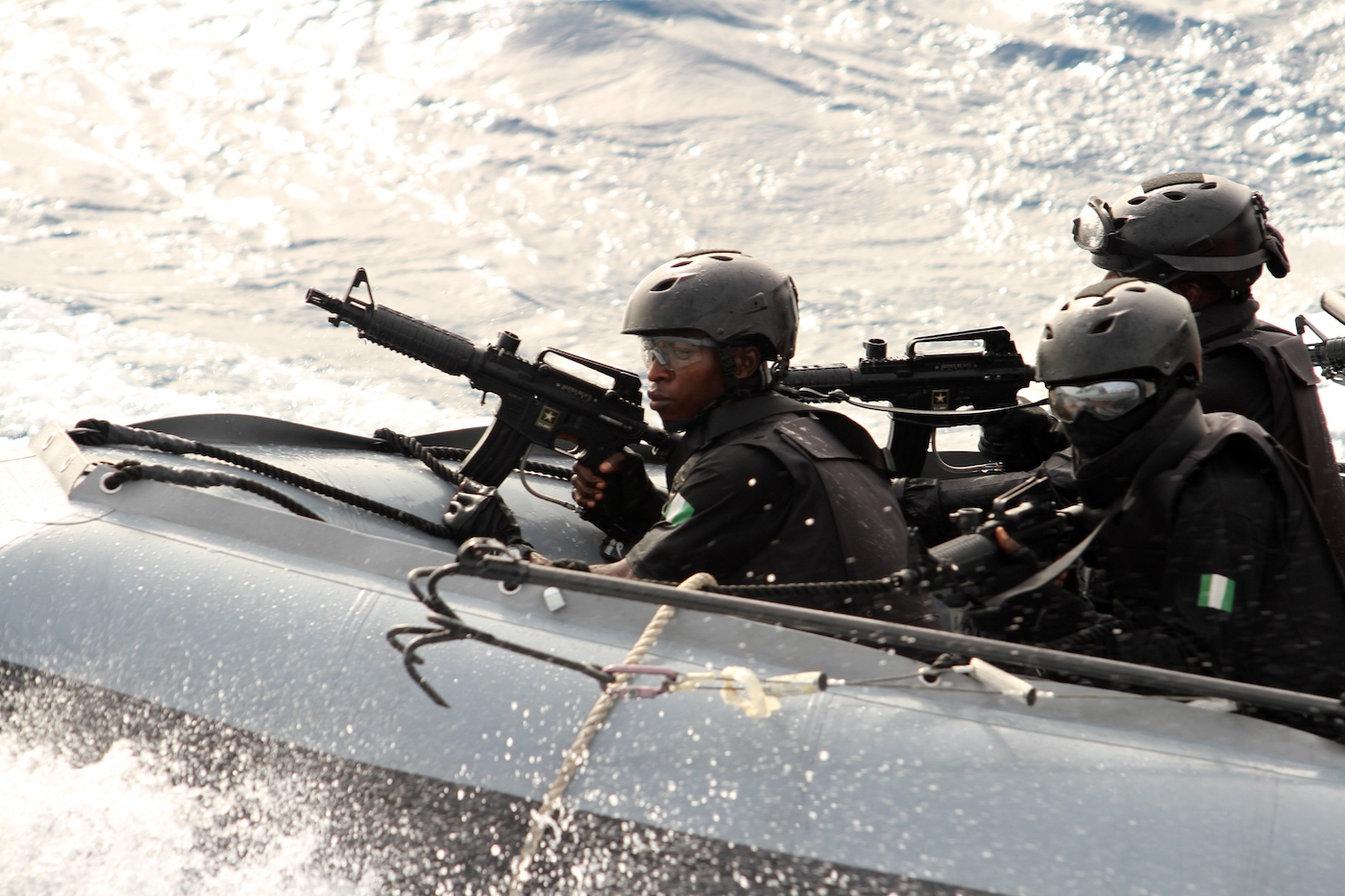Kidnappings surging? Reflections on the IMB’s latest piracy report

An alleged surge in kidnappings in the Gulf of Guinea has made headlines in recent days. In the press release announcing the most recent figures about piracy and armed robbery worldwide, the International Maritime Bureau (IMB) stated that the number of kidnapped seafarers has increased by 40% in the first nine months of 2020, compared to the same period in 2019.
According to the IMB, 80 seafarers were kidnapped and held for ransom in 14 successful attacks against ships in the Gulf of Guinea. The IMB also warned that ‘pirate gangs in the area are well organized and targeting all vessel types over a wide range’.
While these figures sound alarming at first glance, it is worthwhile to take a closer look. First and foremost, they correctly identify a trend towards more hostages being taken during successful attacks. This is not a completely new development. Individual attacks with many hostages have been reported for many years, going back to the attack against the BBC POLONIA in 2010 during which twelve seafarers were taken from the ship.
Overall, however, criminal groups in the Niger Delta now seem to be even more confident in their capabilities. These groups have to be able to protect large groups of hostages during ransom negotiations, both from security forces as well as from rival gangs.
At the same time, more hostages generally lead to higher ransom payments which means that the overall ‘business model’ of kidnap-for-ransom operations is unlikely to change in the near future. While kidnappings remain a primarily land-based security concern, the impact in the maritime environment is undeniable. As long as criminal groups from the Niger Delta have access to the necessary infrastructure – such as hostage camps, experienced negotiators and foot soldiers – on land, it will be virtually impossible to eradicate kidnappings at sea.
Kidnappings and other crimes
An increase in the average number of hostages during successful attacks also means that the overall number of abducted seafarers is higher than in previous years. This is particularly true because the success rate of attackers in 2020 has been higher than in 2019 or 2018. The overall number of successful and failed against merchant vessels in international trade has even decreased a bit since 2016.
It should also be noted that the absolute number of attacks and hostages is relatively low in statistical terms. Two or three more successful attacks per year therefore lead to a significant increase in percentage terms. Statements such as ‘the number of attacks has increased by 25%’ are much more headline-grabbing than ‘the number of attacks has increased from 12 to 15’.
For the IMB in particular, it makes sense to communicate alarming percentages. One of the organisation’s main goals is to lobby governments on behalf of the shipping industry – which also funds the IMB. While it is true that every single attack is one too many, percentage values referring to low absolute numbers should be taken with a grain of salt. When the number of attacks drops from 15 to 12, it would constitute a 20% decrease. What might sound like positive news would not necessarily be a sign that the underlying problem has been addressed in a sustainable manner.
More importantly, comparisons involving the overall number of hostages in 2020 to date with the same period in previous years are complicated. Looking through the IMB report in detail shows that several cases involve attacks against fishing vessels or local cargo ships. While those incidents reflect an overall lack of maritime security across the region, they are more likely to be linked with other types of illicit activities at sea rather than aimed at taking hostages with the aim to collect a ransom.
Crew members from fishing vessels are, broadly speaking, much less ‘valuable’ hostages compared to seafarers from merchant ships in international trade. The fact that such incidents are even part of official statistics is largely due to more awareness and better collaboration between navies and other maritime agencies across West and Central Africa. Similar cases have rarely been noticed in the past.
In a nutshell, an increase in reported attacks – or in the number of kidnapped seafarers – is not the same as an increase in actual attacks. Figures such as those included in the most recent IMB report are now a better reflection of the situation compared with two or three years ago. At the same time, an increased level of awareness is an important step to address piracy and other maritime security issues.
Cooperation is key
It should also be noted that the private sector has an important role when it comes to tackling maritime security issues. In recent months, serious progress has been made. Cooperation between the shipping industry and authorities in Nigeria in particular is improving step by step, underlined by a joint working group statement in early October.
Ship operators should also note one of the IMB’s key recommendation. The report encourages ‘more transparent and timely exchange of information with the regional authorities/navies with a view to safeguard seafarers and keep maritime trade secure’. More transparency and better cooperation from all sides would certainly go a long way to ensure that seafarers can concentrate on their actual job rather than worry about pirate attacks while steaming through the Gulf of Guinea.

